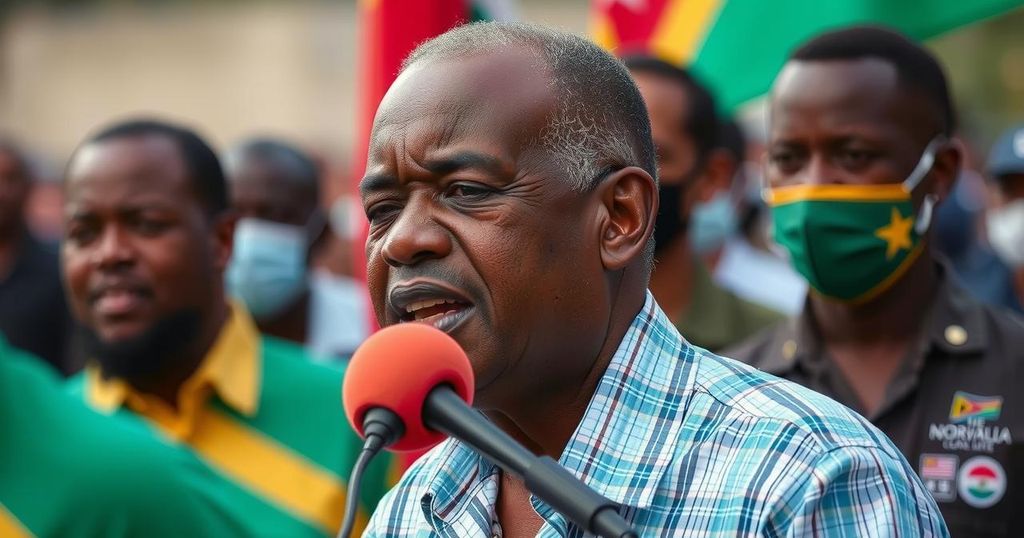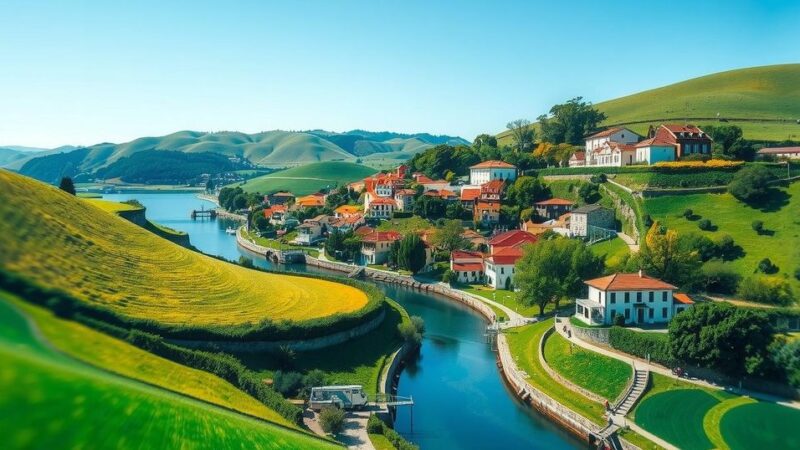Venancio Mondlane, Mozambique’s opposition leader, plans to pause protests for five days to allow international investigations into police abuses. The protests erupted after the controversial electoral victory of Daniel Chapo, leading to over 261 deaths. Meanwhile, South Africa has increased border security to address potential fallout from the violence, and Malawi is experiencing an influx of refugees.
Venancio Mondlane, the opposition leader in Mozambique, announced his consideration to pause protests for five days. This decision aims to permit international organizations to enter the country and investigate alleged police human rights abuses amidst escalating violence. Since the protests commenced following the controversial declaration of Frelimo’s Daniel Chapo as the presidential election winner, the situation has grown increasingly dire, leading to a death toll of at least 261, primarily due to security forces’ gunfire. As protests continue, neighboring South Africa has heightened border security in response to concerns about potential spillover violence. President Cyril Ramaphosa has dispatched an envoy to address the situation, highlighting the bilateral diplomatic efforts to manage the unrest.
The unrest in Mozambique began in late October after the national electoral authority declared Daniel Chapo the presidential election winner with 71% of the vote, despite opposition claims of electoral fraud. Venancio Mondlane’s call for protests led to a response from the Constitutional Council, ratifying Chapo’s victory but lowering his percentage to 65%. This adjustment incited further demonstrations. The increasing violence has also resulted in significant human repercussions, including an influx of refugees into Malawi, where local officials have reported sheltering approximately 3,000 individuals due to the turmoil in Mozambique.
Recent reports show that the protests and ensuing violence have severely disrupted normal activities in Mozambique, prompting refugees to flee to Malawi. These developments have raised significant security concerns in the region, as the situation remains volatile, stressing the need for a resolution. In conjunction, the South African government has taken preventive measures to manage potential crime arising from the unrest near its borders. The responsive actions by both nations suggest a commitment to stability and cooperation despite the challenges posed by the ongoing violence.
The ongoing protests in Mozambique primarily stem from dissatisfaction with the recent presidential election results, which opposition figures claim were marred by electoral fraud. Venancio Mondlane, representing the opposition party, has rallied supporters following the electoral victory of ruling party candidate Daniel Chapo. The protests escalated significantly after the Constitutional Council upheld Chapo’s win, prompting violent demonstrations and a subsequent death toll that highlights the severity of the unrest. The situation has further prompted international attention, with neighboring countries increasingly aware of potential regional instability.
In conclusion, the protests in Mozambique, ignited by contentious electoral outcomes, have resulted in tragic loss of life and growing instability. The decision by opposition leader Venancio Mondlane to potentially halt protests temporarily reflects a strategic move to invite international scrutiny into human rights violations. Concurrently, regional dynamics are shifting, with South Africa enhancing border security and diplomatic efforts to stabilize the situation, indicating a broader concern for national and regional security amid ongoing unrest.
Original Source: www.aa.com.tr







